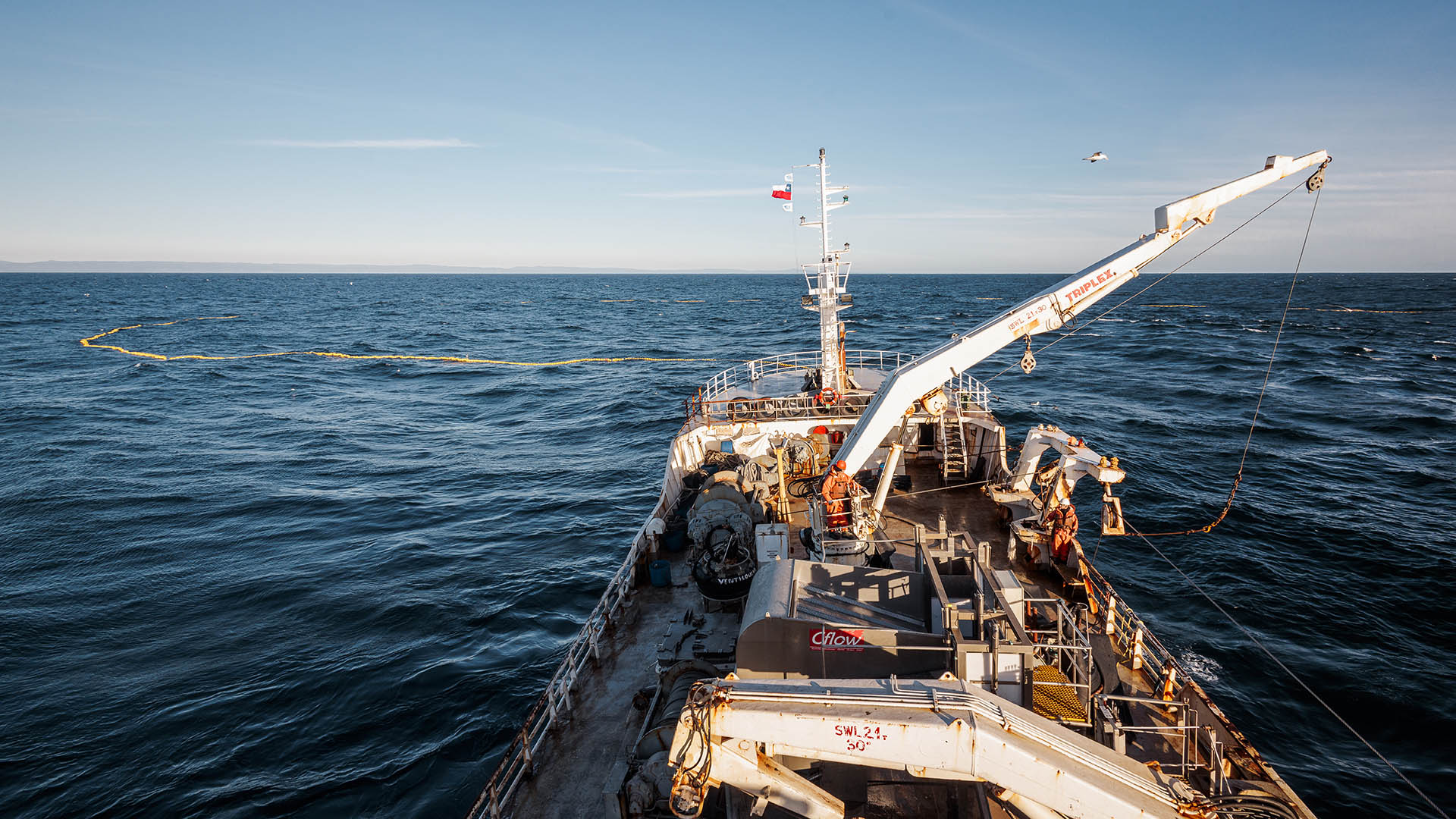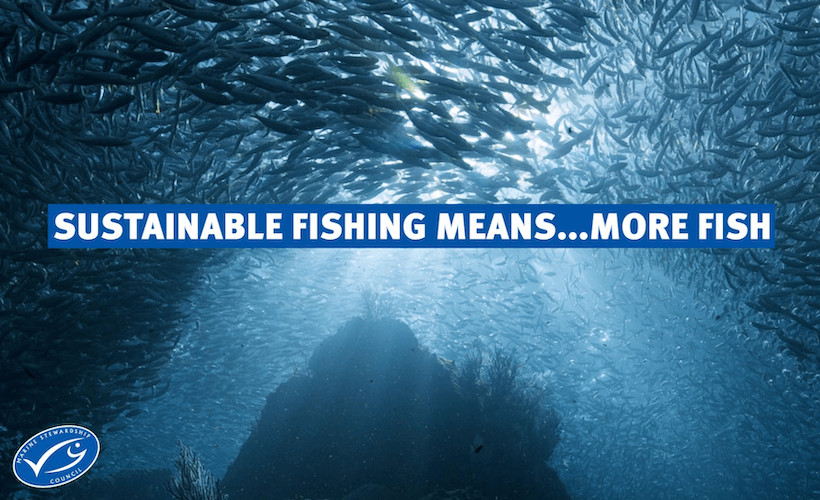If all fisheries were sustainably managed, we could meet the annual protein needs of an additional 72 million people every year.
It all starts with sustainable fishing
Sustainable fishing means balancing the needs of the marine ecosystem with the need to feed the growing human population.
Sustainable fisheries catch fish and shellfish in a way that ensures there will be plenty of fish left to replenish the population. This helps ecosystems remain healthy and makes it possible for fishing to continue for generations to come.
In order to fish sustainably, fishery managers need to know how many fish there are, how fast they mature, and how many are caught. They figure this out with data from scientific surveys and the fishery itself, as well as mathematical models. Scientists can then advise fishers on how much fish can be caught each year without harming the long-term health of the population. If the population becomes unstable due to environmental changes or any other factor, managers can reduce the number of fish that can be taken or limit where and when fishing happens. This process of using scientific advice to limit fishing to sustainable levels has been applied successfully all around the world.
For example, too many Chilean jack mackerel were being fished in the early 2000s, so in 2014, managers implemented a rebuilding plan where fishers agreed to limit their catches in line with scientific advice. Now, the Chilean jack mackerel population has recovered, with recent figures showing the catches have increased by over 95% from 2015 to 2022. Currently, the fishery is fished well within sustainable limits and MSC certified.
By fishing at sustainable levels populations can grow and have more time to reproduce, resulting in bigger, healthier fish communities in the future. So, sustainable fishing ultimately leads to more fish.

Sustainable fishing means more fish
Research shows that we could actually eat more fish in the long term if we tried to catch less in the short term. In fact, 16 million metric tons more seafood could be harvested annually if all fisheries were managed sustainably.
That’s enough seafood to meet the annual protein needs of 72 million people, or roughly every person living in California, Oregon, Washington, British Columbia, and Ontario combined.
This is more important than ever, as the increasing global population is putting pressure on seafood as a valuable food resource. The world’s consumption of seafood has risen by 122% in the last 30 years with more than a third of global stocks now being fished beyond sustainable limits. And with the population set to reach 10 billion by 2050, sustainably managing our last wild food source really matters.
Over the last 25+ years of MSC’s existence, we have seen how effective management of fisheries helps stocks and ecosystems recover. If we fish with the future in mind – catching a little less now to allow all overfished stocks to recover – we could increase the number of fish that could be caught forever.

More fish is better for us and for the ocean
Eliminating overfishing is a win-win for our planet. Not only does it help feed more people, but it keeps ecosystems healthy as well.
The negative impacts of overfishing extend beyond the fish that are targeted. It can also impact other marine life that interact with fishing vessels or live in heavily fished areas. For example, oceanic shark and ray species have declined by 71% since the 1970s, with overfishing listed as the primary cause of decline. Bycatch is one of the leading threats to marine biodiversity. It is estimated that 9.1 million tons (around 10% of annual catches) are discarded by marine commercial fisheries each year.
The good news is that MSC certified sustainable fisheries are required to minimize their impact on the surrounding ecosystem and have measurements in place to reduce bycatch and protect endangered, threatened, and protected species. That’s how certified sustainable fisheries help protect biodiversity and contribute to a healthier ocean. Protecting marine biodiversity is essential because it allows nature to be productive, resilient, and adaptable to environmental changes far into the future.
Sustainable fishing has a critical role to play in both contributing to a healthier ocean and to feeding a growing planet. And when fisheries are managed sustainably, there’s more for everyone.




